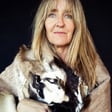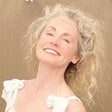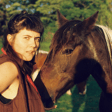
The Way of the Owl with Morag Gamble
Three unbelievable stories about owls, and how to be a myceliating, possibilitarian practivist with the phenomenal Morag Gamble.
Morag has cornflower blue eyes and a glorious crop of hair that curls at the ends like pea shoots. She consorts with broad beans and leafy greens in bare feet, and has sent no dig gardening viral on YouTube.
This convo was recorded at Crystal Waters Eco Village where Morag lives with her family and 200+ other humans on 640 acres shared with a teeming assortment of subtropical wildlife.
📝 SHOW NOTES
Building your livelihood around the seasons of your life
How to find your flow and live with intention
More than human helpers and teachers
“I am the garden gardening”
Ways to access land when accessing land is insane
Myceliating ideas around the world
Why aren’t permaculture villages everywhere?
Possibilitarianism
Nourish threads of connection rather than fighting the fight
How the new unfolds through collapse of the old
The vital role of the arts
How are we to live?
What is enough in these times?
Why permaculture is everything
Gift economy how-to
Do you have what it takes to be a permaculture teacher?
Integrating permaculture with your profession
Morag is a beloved permaculture teacher and designer, founder of The Permaculture Education Institute, pioneer of urban permaculture projects like Northey Street City Farm, and an international changemaker who has led changemaking programs in 22 countries.
🧙♀️ LINKY POOS
Morag’s podcast ~ Sense-making in a changing world
Become a permaculture teacher ~ The Permaculture Education Institute
Vandana Shiva
Arne Ness
Helena Norberg-Hodge
Fritjof Capra



















